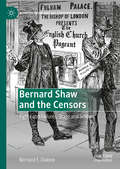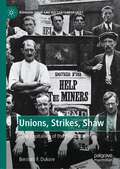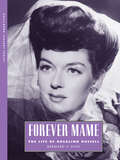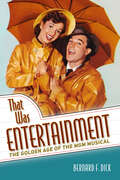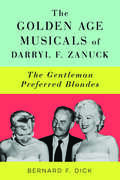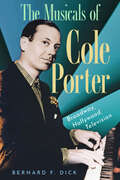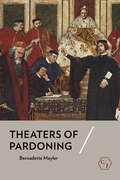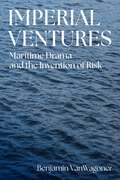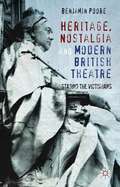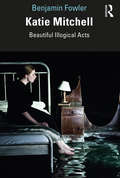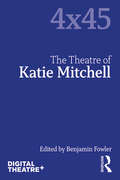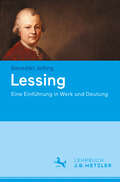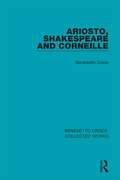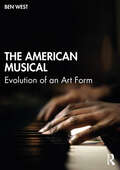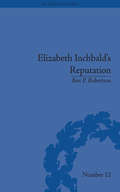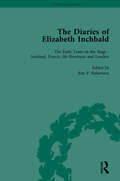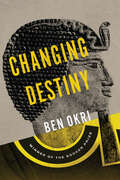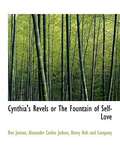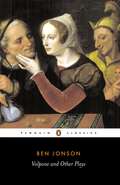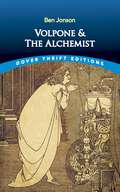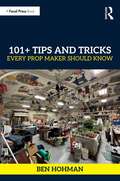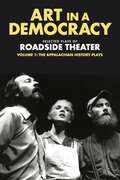- Table View
- List View
Bernard Shaw and the Censors: Fights and Failures, Stage and Screen (Bernard Shaw and His Contemporaries)
by Bernard F. Dukore“Dukore’s style is fluid and his wit delightful. I learned a tremendous amount, as will most readers, and Bernard Shaw and the Censors will doubtless be the last word on the topic.”- Michel Pharand, former editor of SHAW: The Journal of Bernard Shaw Studies and author of Bernard Shaw and the French (2001). "This book shows us a new side of Shaw and his complicated relationships to the powerful mechanisms of stage and screen censorship in the long twentieth century.” - - Lauren Arrington, Professor of English, Maynooth University, IrelandA fresh view of Shaw versus stage and screen censors, this book describes Shaw as fighter and failure, whose battles against censorship – of his plays and those of others, of his works for the screen and those of others – he sometimes won but usually lost. We forget usually, because ultimately he prevailed and because his witty reports of defeats are so buoyant, they seem to describe triumphs. We think of him as a celebrity, not an outsider; as a classic, not one of the avant-garde, of which Victorians and Edwardians were intolerant; as ahead of his time, not of it, when he was called “disgusting,” “immoral", and "degenerate.” Yet it took over three decades and a world war before British censors permitted a public performance of Mrs Warren’s Profession. We remember him as an Academy Award winner for Pygmalion, not as an author whose dialogue censors required deletions for showings in the United States. Scrutinizing the powerful stage and cinema censorship in Britain and America, this book focuses on one of its most notable campaigners against them in the last century.
Unions, Strikes, Shaw: "The Capitalism of the Proletariat" (Bernard Shaw and His Contemporaries)
by Bernard F. DukoreUnions, Strikes, Shaw: ‘The Capitalism of the Proletariat’ is the first book to treat Bernard Shaw—socialist, dramatist, public speaker and union member—in relation to unions and strikes. For over half a century he urged workers to join unions, which he called, paradoxically, “the Capitalism of the Proletariat,” because as capitalists try to get as much labor as possible from workers while paying them as little as possible, unions try to gain as high wages as possible from employers while working as little as possible. He opposed general strikes as destined to fail, since owners can hold out longer than workers, whose unions have less money to support them during strikes. This book offers background on major strikes in and before Shaw’s time —including the Colorado Coalfield War and the Dublin Lockout, both in 1913—before analyzing the causes, day-by-day events and consequences of Britain’s 1926 General Strike. It begins and ends with examinations of their and Shaw’s relevance to actions on unions and strikes in our own time.
Forever Mame: The Life of Rosalind Russell (Hollywood Legends Series)
by Bernard F. DickWhen it comes to living life to its fullest, Rosalind Russell's character Auntie Mame is still the silver screen's exemplar. And Mame, the role Russell (1907–1976) would always be remembered for, embodies the rich and rewarding life Bernard F. Dick reveals in the first biography of this Golden Age star, Forever Mame: The Life of Rosalind Russell. Drawing on personal interviews and information from the archives of Russell and her producer-husband Frederick Brisson, Dick begins with Russell's childhood in Waterbury, Connecticut, and chronicles her early attempts to achieve recognition after graduating from the American Academy of Dramatic Arts. Frustrated by her inability to land a lead in a Broadway show, she headed for Hollywood in 1934 and two years later played her first starring role, the title character in Craig’s Wife. Dick discusses all of her films along with her triumphal return to Broadway, first in the musical Wonderful Town and later in Auntie Mame. Forever Mame details Russell's social circle of such stars as Loretta Young, Cary Grant, and Frank Sinatra. It traces an extraordinary career, ending with Russell's courageous battle against the two diseases that eventually caused her death: rheumatoid arthritis and cancer. Russell devoted her last years to campaigning for arthritis research. So successful was she in her efforts to alert lawmakers to this crippling disease that a leading San Francisco research center is named after her.
That Was Entertainment: The Golden Age of the MGM Musical
by Bernard F. DickThat Was Entertainment: The Golden Age of the MGM Musical traces the development of the MGM musical from The Broadway Melody (1929) through its heyday in the 1940s and 1950s and its decline in the 1960s, culminating in the notorious 1970 MGM auction when Judy Garland's ruby slippers from The Wizard of Oz, Charlton Heston's chariot from Ben-Hur, and Fred Astaire's trousers and dress shirt from Royal Wedding vanished to the highest bidders.That Was Entertainment uniquely reconstructs the life of Arthur Freed, whose unit at MGM became the gold standard against which the musicals of other studios were measured. Without Freed, Judy Garland, Gene Kelly, Fred Astaire, Ann Miller, Betty Garrett, Cyd Charisse, Arlene Dahl, Vera-Ellen, Lucille Bremer, Gloria DeHaven, Howard Keel, and June Allyson would never have had the signature films that established them as movie legends.MGM's past is its present. No other studio produced such a range of musicals that are still shown today on television and all of which are covered in this volume, from integrated musicals in which song and dance were seamlessly embedded in the plot (Meet Me in St. Louis and Seven Brides for Seven Brothers) to revues (The Hollywood Revue of 1929 and Ziegfeld Follies); original musicals (Singin' in the Rain, Easter Parade, and It's Always Fair Weather); adaptations of Broadway shows (Girl Crazy, On the Town, Show Boat, Kiss Me Kate, Brigadoon, Kismet, and Bells Are Ringing); musical versions of novels and plays (Gigi, The Pirate, and Summer Holiday); operettas (the films of Jeanette MacDonald and Nelson Eddy); mythico-historical biographies of composers (Johann Strauss Jr. in The Great Waltz and Sigmund Romberg in Deep in My Heart); and musicals featuring songwriting teams (Rodgers and Hart in Words and Music and Kalmar and Ruby in Three Little Words), opera stars (Enrico Caruso in The Great Caruso and Marjorie Lawrence in Interrupted Melody), and pop singers (Ruth Etting in Love Me or Leave Me). Also covered is the water ballet musical--in a class by itself--with Esther Williams starring as MGM's resident mermaid. This is a book for longtime lovers of the movie musical and those discovering the genre for the first time.
The Golden Age Musicals of Darryl F. Zanuck: The Gentleman Preferred Blondes
by Bernard F. DickBeginning with The Jazz Singer (1927) and 42nd Street (1933), legendary Hollywood film producer Darryl F. Zanuck (1902–1979) revolutionized the movie musical, cementing its place in American popular culture. Zanuck, who got his start writing stories and scripts in the silent film era, worked his way to becoming a top production executive at Warner Bros. in the later 1920s and early 1930s. Leaving that studio in 1933, he and industry executive Joseph Schenck formed Twentieth Century Pictures, an independent Hollywood motion picture production company. In 1935, Zanuck merged his Twentieth Century Pictures with the ailing Fox Film Corporation, resulting in the combined Twentieth Century-Fox, which instantly became a new major Hollywood film entity.The Golden Age Musicals of Darryl F. Zanuck: The Gentleman Preferred Blondes is the first book devoted to the musicals that Zanuck produced at these three studios. The volume spotlights how he placed his personal imprint on the genre and how—especially at Twentieth Century-Fox—he nurtured and showcased several blonde female stars who headlined the studio’s musicals—including Shirley Temple, Alice Faye, Betty Grable, Vivian Blaine, June Haver, Marilyn Monroe, and Sheree North. Building upon Bernard F. Dick’s previous work in That Was Entertainment: The Golden Age of the MGM Musical, this volume illustrates the richness of the American movie musical, tracing how these song-and-dance films fit within the career of Darryl F. Zanuck and within the timeline of Hollywood history.
The Musicals of Cole Porter: Broadway, Hollywood, Television
by Bernard F. DickCole Porter (1891–1964) remains one of America’s most popular composer-songwriters, known for the many urbane, witty, romantic songs he wrote for stage musicals and Hollywood films. Porter was unique among his contemporaries for writing both the music and lyrics for his compositions. To this day, several of his numbers—“Night and Day,” “I’ve Got You Under My Skin,” “You’re the Top,” and “I Get a Kick Out of You,” to name a few—endure as standards. In The Musicals of Cole Porter: Broadway, Hollywood, Television, Bernard F. Dick presents a critical study of Porter’s Broadway and movie musicals, and his one foray into live television, Aladdin—covering the period from his first failure, See America First (1916), to the moderately successful Silk Stockings (1955), which ended his Broadway career. Taking a chronological approach, interspersed with chapters on Porter’s “list songs” that owe much to such operas as Mozart’s Don Giovanni and Rossini’s The Barber of Seville; his love songs, often bittersweet and bleakly poignant; and, above all, his love of figurative language, Dick discusses in detail the various literary sources and cultural reference points that inspired the lyrics to Porter’s numbers. The first volume of its kind exclusively dedicated to exploring the extensive body of work by this influential twentieth-century songwriter, The Musicals of Cole Porter is a compelling resource for readers interested in the craft of a great composer-lyricist.
Theaters of Pardoning (Corpus Juris: The Humanities in Politics and Law)
by Bernadette MeylerFrom Gerald Ford's preemptive pardon of Richard Nixon and Donald Trump's claims that as president he could pardon himself to the posthumous royal pardon of Alan Turing, the power of the pardon has a powerful hold on the political and cultural imagination. In Theaters of Pardoning, Bernadette Meyler traces the roots of contemporary understandings of pardoning to tragicomic "theaters of pardoning" in the drama and politics of seventeenth-century England. Shifts in how pardoning was represented on the stage and discussed in political tracts and in Parliament reflected the transition from a more monarchical and judgment-focused form of the concept to an increasingly parliamentary and legislative vision of sovereignty.Meyler shows that on the English stage, individual pardons of revenge subtly transformed into more sweeping pardons of revolution, from Shakespeare's Measure for Measure, where a series of final pardons interrupts what might otherwise have been a cycle of revenge, to later works like John Ford's The Laws of Candy and Philip Massinger's The Bondman, in which the exercise of mercy prevents the overturn of the state itself. In the political arena, the pardon as a right of kingship evolved into a legal concept, culminating in the idea of a general amnesty, the "Act of Oblivion," for actions taken during the English Civil War. Reconceiving pardoning as law-giving effectively displaced sovereignty from king to legislature, a shift that continues to attract suspicion about the exercise of pardoning. Only by breaking the connection between pardoning and sovereignty that was cemented in seventeenth-century England, Meyler concludes, can we reinvigorate the pardon as a democratic practice.
Imperial Ventures: Maritime Drama and the Invention of Risk
by Benjamin VanWagonerLinks early modern English drama and empire studies, exploring how staged scenes of maritime peril created a new form of economic uncertaintyImperial Ventures links early modern English drama and empire studies, exploring how staged scenes of maritime peril created a new form of economic uncertainty around the turn of the seventeenth century, amid London’s explosion in commercial colonialism.While the hazards of global maritime trade became increasingly apparent during the late sixteenth and early seventeenth centuries, the word “risk” did not enter English usage until around 1660. The prevailing scholarly narrative has linked uncertainty to concepts such as “chance,” “accident,” and “providence,” but this book reveals that these fragmentary concepts were reordered into an economic abstraction, and that the theater was a key site for that process. Playwrights reached for ways to represent this new uncertainty, and audiences watched perilous voyages set in colonial contexts and dramatized in increasingly typical forms. Imperial Ventures is organized by these forms, with five chapters examining scenes of shipwreck, pirates, enslavement, colonial subjection, and perilous news across a wide range of early modern plays.Benjamin VanWagoner shows how maritime drama connected English venturing to economic vulnerability in increasingly systematic ways, helping to develop the economic logic that would come to be codified as risk. In revealing this process, Imperial Ventures establishes the unique protocolonial status of early modern England—in the theater and at sea—and demonstrates how risk became a perverse instrument for justifying Anglophone imperialism.
Heritage, Nostalgia and Modern British Theatre
by Benjamin PooreThe Victorians, having once been seen as 'them', the age responsible for the mistakes of the past, were transformed by the new theatrical forms of the 1960s into 'us', a metaphor for what the nation thinks (and fears) about itself. And, since the 1980s and the rise of new biographical forms in the theatre, the emphasis has shifted further, from 'we' to 'me': plays about individuals, great and small, and their struggles for personal validation. This study argues powerfully that the stage portrayal of the Victorians in recent times is a key reference point in understanding notions of Britishness, heritage and nostalgia, and the profound politicisation of national identity over the last four decades. Using many examples drawn from theatre archives, and throwing new light on works by canonical playwrights like Bond, Edgar, and Churchill, it charts the decline in class-based narratives of the British people and the move towards plays reflecting a more atomised, individuated society, preoccupied with identity and the past but no longer able to provide a convincing account of itself as a nation.
Torch the Place: MTC NEXTSTAGE ORIGINAL
by Benjamin LawTeresa's mum finds it impossible to let anything go-from grudges to household objects. She thinks of her home as a museum full of irreplaceable treasures. But she's not really a curator, she's a hoarder, and her house is enough to give Marie Kondo heart palpitations. When her kids return home to celebrate her 60th birthday, she's over the moon to have the family back together. But this isn't a reunion. It's an intervention. Celebrated writer Benjamin Law is one of this country's brightest literary stars. For his hysterically funny and moving stage premiere, Law employs his effortless self-deprecating wit to spark joy in the clutter and find truth in those crazy moments that bring families closer together. Commissioned through MTC's NEXT STAGE Writers' Program with the support of our Playwrights Giving Circle Donors, The Ian Potter Foundation, Naomi Milgrom Foundation, The Myer Foundation, Malcolm Robertson Foundation and The University of Melbourne.
Katie Mitchell: Beautiful Illogical Acts
by Benjamin FowlerKatie Mitchell: Beautiful Illogical Acts offers the first comprehensive study of Britain’s most internationally recognised, influential, and controversial theatre director. It examines Mitchell’s innovations in fourth-wall realism, opera, and Live Cinema across major British and European institutions, bringing three decades of practice vividly to life. Informed by first-hand rehearsal observations and in-depth conversations with the director and her collaborators, Fowler investigates the intense and immersive qualities of Mitchell’s distinctive theatrical realism and challenges mainstream narratives about realism as a defunct or inherently conservative genre. He explores Mitchell’s theatre—and its often polarised reception—to question familiar assumptions governing contemporary performance criticism, including common binaries that pit realism against radical experimentation, auteurs against texts, feminists against Naturalism, and Britain against Europe. By examining a career trajectory that intersects with huge cultural change, Fowler places Mitchell at the centre of urgent contemporary debates about cultural transformation and its genuinely inclusive potential. This is an essential book for those interested in Katie Mitchell, British theatre, directing, the transformative power of realism and feminism in contemporary theatre practice, and challenges to hierarchical distributions of power inside the mainstream.
The Theatre of Katie Mitchell (4x45)
by Benjamin FowlerThis first volume in the 4x45 series investigates the work of theatre director Katie Mitchell. Pausing to reconsider a career in progress, it engages with some of Mitchell’s most recent work in the UK and Europe across theatre, opera, and Live Cinema. It also takes a longer view, considering the early turns that Mitchell took at the start of her career in the late 1980s. This volume gives full scope to the voice of the practitioner, alongside scholarly perspectives, in order to understand the work from within. Interviews with Mitchell’s collaborators get inside her process – and inside the thinking of key artists who help craft the distinctive visual, aesthetic and technological forms of Mitchell’s productions. Three major concerns criss-cross these contributions: the political implications of aesthetic form; the meaning of Mitchell’s interest in the radical project of early Naturalism; and the influence of Europe on Mitchell’s avant-garde experimentalism, which often draws on technology to open up new modes of perception and experience. An accessible and encompassing examination of one of Europe's most celebrated theatrical talents, 4x45 | The Theatre of Katie Mitchell is a unique resource for scholars,students and practitioners of Theatre Studies, Performance and Directing.
Lessing: Eine Einführung in Werk und Deutung
by Benedikt JeßingGotthold Ephraim Lessing ist neben Schiller und Goethe der meistgelesene und -unterrichtete deutsche Dichter des 18. Jahrhunderts. Sein Werk, das v.a. mit dem Begriff des bürgerlichen Trauerspiels und dem Nathan verbunden ist, umfasst daneben Lustspiele, Fabeln und Lyrik und gilt als Höhepunkt der literarischen Aufklärung. Mindestens ebenso wichtig zum Verständnis seiner Schriften ist die Tradition der Empfindsamkeit, die er in seinen theoretischen Arbeiten und literarischen Werken fortführt. Der Band erschließt auf Basis einer knappen Erörterung der theoretischen Positionen die wichtigsten Werke Lessings in textnahen Lektüren.
Ariosto, Shakespeare and Corneille (Collected Works)
by Benedetto CroceOriginally published in 1921 this volume consists of the first of Croce’s literary criticisms to be published in English and as well as a section on Shakespeare, it contains unique essays on Ariosto and Corneille which together inaugurated a new era in literary criticism. The essays are based on Croce’s Theory of Aesthetic - a theory which to many is the only one that completely explains the problem of poetry and the fine arts - and as a result are profound and suggestive.
The American Musical: Evolution of an Art Form
by Ben WestThe American Musical is a comprehensive history of an American art form. It delivers a detailed and definitive portrait of the American musical’s artistic evolution over the course of seven distinct, newly defined eras, with a unique perspective gleaned from research at more than twenty different archives across the United States.Individual in both its approach and coverage, The American Musical traces the form’s creative journey from its 19th century beginnings, through its 20th century maturation, and to the turn of the 21st century, shedding new light on a myriad of authors, directors, and craftspeople who worked on Broadway and beyond. This book actively addresses the form’s often overlooked female and African-American artists, provides an in-depth accounting of such outside influences as minstrelsy, vaudeville, nightclubs, and burlesque, and explores the dynamic relationship between the form and the consciousness of its country.The American Musical is a fascinating and insightful read for students, artists, and afficionados of the American musical, and anyone with an interest in this singular form of entertainment.
Elizabeth Inchbald's Reputation: A Publishing and Reception History (The History of the Book #12)
by Ben P RobertsonThrough an examination of her complete works and public response to them, Robertson gauges the extent of Inchbald's reputation as the dignified Mrs Inchbald, as well as providing a clear sense of what it meant to be a female Romantic writer.
The Diaries of Elizabeth Inchbald Vol 1
by Ben P RobertsonAn energetic woman, Inchbald achieved fame as an actress, novelist, playwright and critic. This work includes her eleven surviving diaries, which record Inchbald's social contacts and professional activities, itemize her day-to-day expenditure, and chart the development of affairs such as the Napoleonic Wars and the trial of Queen Caroline.
Changing Destiny
by Ben OkriA bold new adaptation of the 4,000-year-old Egyptian poem about Warrior King Sinuhe that captures the essence of civilization and the complexities of immigration, from the Booker Prize–winning author.Forced to flee Egypt, Sinuhe is captured as a prisoner of war by the foreign Kingdom of Retenu. Stripped of status and tormented by memories, Sinuhe will need great force of will to survive as a stranger in an unknown land. But can he transcend the mysterious powers of Egypt and the tribulations of exile?With two actors incarnating a multitude of characters, Ben Okri&’s play recreates one of the world&’s first known stories, a timeless tale about the strength of the human spirit.
Cynthia's Revels; Or, The Fountain of Self-Love
by Ben JonsonThe play begins with three pages disputing over the black cloak usually worn by the actor who delivers the prologue. They draw lots for the cloak, and one of the losers, Anaides, starts telling the audience what happens in the play to come; the others try to suppress him, interrupting him and putting their hands over his mouth. Soon they are fighting over the cloak and criticizing the author and the spectators as well. In the play proper, the goddess Diana, also called Cynthia, has ordained a "solemn revels" in the valley of Gargaphie in Greece. The gods Cupid and Mercury appear, and they too start to argue. Mercury has awakened Echo, who weeps for Narcissus, and states that a drink from Narcissus's spring causes the drinkers to "Grow dotingly enamored of themselves." The courtiers and ladies assembled for the Cynthia's revels all drink from the spring.
Volpone and Other Plays
by Ben JonsonThe three plays collected in this volume depict the faults, errors and foibles of ordinary people with exuberant humour, savage satire and acute observations. Volpone portrays a rich Venetian who pretends to be dying so that his despised acquaintances will flock to his bedside with extravagant gifts in hope of an inheritance. The Alchemist also deals with greed and gullibility, as a rascally trio of confidence tricksters, claiming to have the legendary Philosopher's Stone, fool a series of victims who are hoping to make some easy money. And in a wonderfully energetic portrait of Jacobean life, Bartholomew Fair shows a diverse group of Londoners sampling the delights and temptations of the Fair - and the traders, prostitutes and cutpurses who set out to exploit them.
Volpone and The Alchemist (Dover Thrift Editions: Plays)
by Ben JonsonThese much-studied and frequently performed comedies by the great Elizabethan playwright satirize the greed, mendacity, gullibility, and pretension that Jonson saw rampant in 17h-century London society. Both plays feature colorful characters, ingenious plotting, biting wit, and sharp insight into human nature. This is the only edition to include both plays in one, inexpensive volume.
101+ Tips and Tricks Every Prop Maker Should Know
by Ben HohmanIn 101+ Tips and Tricks Every Prop Maker Should Know, Utah Shakespeare Festival’s Properties Director Ben Hohman explains tricks of the trade generally not taught in schools, but essential for prop makers working on the job. With tips and tricks divided into subject categories like carpentry, prop math, soft goods, upholstery, finishing, crafts and effects, and tools, the book breaks this knowledge down so that makers and prop managers can easily access the information, learn the skills, and be better prepared and more useful to any shop they work in. Each tip or trick is clearly introduced, features a relevant example of how it is useful, and includes step-by-step instructions. The book also features interviews and tips from prop makers across the creative industries, showcasing different techniques and need-to-know skills, and a glossary of prop terms that will help readers navigate the day-to-day of the prop shop.This book is written for theatrical prop artisans, prop managers, technical theatre students, and anyone who has an interest in prop building or backstage theatrical knowledge. Whether they are novice prop builders or seasoned professionals with decades of experience, this book will provide readers with a wealth of practical information that will serve them in their craft for many years to come.
Art in a Democracy: Selected Plays of Roadside Theater, Volume 1: The Appalachian History Plays, 1975–1989
by Ben FinkSeminal plays and essays reveal the radical origins and approach of Appalachia’s Roadside TheaterThis two-volume anthology tells the story of Roadside Theater’s first 45 years and includes nine award-winning original play scripts; ten essays by authors from different disciplines and generations, which explore the plays’ social, economic, and political circumstances; and a critical recounting of the theater’s history from 1975 through 2020. The plays in Volume 1 offer a people’s history of the Appalachian coalfields, from the European incursion through the American War in Vietnam.
